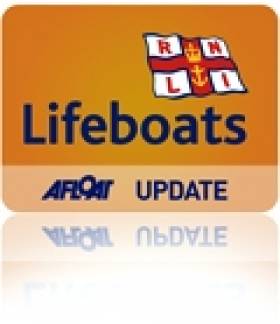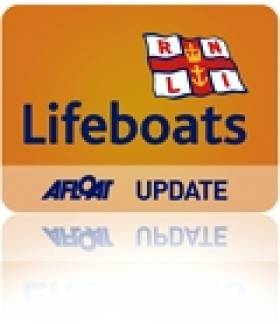Displaying items by tag: Atlantic 21
Sea Trials Won't Weather New Shannon Class Lifeboat
#Lifeboats - The video above shows off a prototype of the RNLI's new lifeboat class, the Shannon, as it undergoes sea trials to determine how it handles the rough weather all too common to the seas around the UK and Ireland.
As previously reported on Afloat.ie, Irish naval architect Peter Eyre has been instrumental in the new lifeboat design, which is nearly 50% faster than the vessels currently in service.
It's also the second RNLI boat to be designed by an Irishman, after the Atlantic 21 developed in the 1970s by Cork-born Rear Admiral Desmond Hoare at the Atlantic College in Wales.
In other RNLI news, tributes were paid in the Isle of Man this week to the founder of the lifeboat institution in an annual ceremony on the Irish Sea island.
As BBC News reports, Sir William Hillary launched an appeal in 1824 that let to the formation of the RNLI, and he went on to serve as a member of the lifeboat crew at Douglas.
New Lifeboat for Shannon Estuary
Volunteers at Kilrush Royal National Lifeboat Institution (RNLI) station on the Shannon Estuary have received a new state-of-the-art lifeboat which enters service this month.
The Atlantic 85 RIB (Rigid Inflatable boat) is not only bigger and more powerful than Kilrush's existing craft but it also fitted with the latest Search and Rescue technology and instrumentation, equipping the service to continue saving lives into the next generation. Kilrush is one of only two stations in Ireland and the UK which will receive such an upgrade this year.
Following the construction of a new station in 1996, an Atlantic 21 B Class lifeboat was placed on temporary duty at the Kilrush station however it was replaced by a new Atlantic 75 lifeboat the following October. Fourteen years later, this vessel will now be replaced by the new Atlantic 85.
Kilrush Lifeboat Operations Manager John Lamb said, "This is a great vote of confidence in the crew here at Kilrush. It shows that we are doing what is being asked of us and that are being rewarded by being entrusted by this the latest in lifeboat technology and development"
The Atlantic class of lifeboats is named after Atlantic College, where the design was originally developed. Like previous RIBs, it has a manually operated self-righting mechanism, deploying an airbag mounted atop the A-frame arch. It is capable of being beached in an emergency without sustaining damage to engines or steering gear. The Atlantic 85 is fitted with radar and VHF direction finding equipment and can be operated safely in daylight in a force 6/7 and at night in a force 5/6 gale.
Related Safety posts
RNLI Lifeboats in Ireland
Safety News
Rescue News from RNLI Lifeboats in Ireland
Coast Guard News from Ireland
Water Safety News from Ireland
Marine Casualty Investigation Board News
Marine Warnings

























































